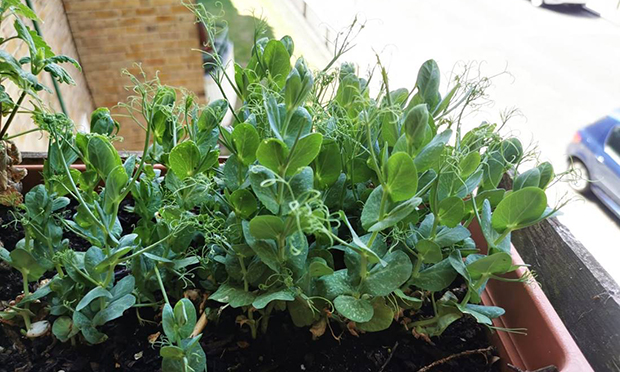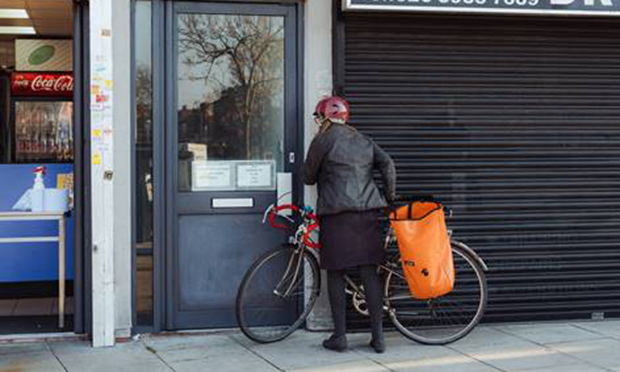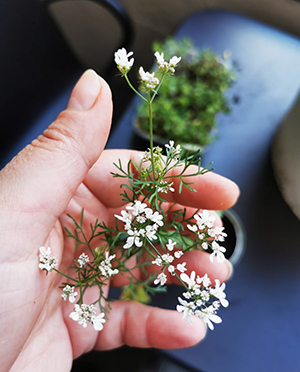The Citizen Gardener: ‘Be radical and grow your own food’

Anyone who has eaten a tomato off a plant they have grown, knows the delight of raising something from seed. But it’s also a political act.
In the early days of the lockdown, when food seemed scarce (or at least the delivery of it did), there appeared to be a shift in attitudes towards the supply of food with the realisation that the chain was weak in times of crisis. There was a big increase in the numbers of people wanting to start their food from scratch.
Across the country, small organisations delivered seeds to new growers. The Women’s Environment Network in Tower Hamlets had more than 700 requests. Incredible Edible Lambeth rushed to put together kits for growers and, in Hackney, I delivered more than 100 packets of free seeds around the borough.
Many other groups have been doing this informally. My WhatsApp pings continually with offers of plant giveaways, help and ideas. A recent petition to ask the council for more growing space has attracted more than 600 signatures. Some seed companies have reported a 600 per cent increase in sales. There have been new growing groups and increased vigour in existing ones.

This enthusiasm could fade away once the pleasure of summer goes and we go back to ‘normal’, but there is a movement to keep this momentum going and actually change the way we get our fresh food.
According to government figures, we currently import 86 per cent of our fruits and 47 per cent of vegetables, with most coming from Spain.
This seems to me to be a fragile situation, along with the shrinking number of companies selling seeds.
This is something I’ve written about before here, and there was an excellent edition of the Food Programme highlighting the issues of seed and food sovereignty.
We can do something.
Growing more is possible in urban areas. Not only are places like allotments and community gardens highly productive, but there are many unused places that could be used for growing food – gooseberry bushes on street corners? Hazelnut hedges around estates?
Recent research by Sheffield University found that growing fruit and veg in 10 per cent of the urban environment there could provide 15 per cent of the population’s five-a-day.
Dr Jill Edmondson said: “At the moment, the UK is utterly dependent on complex international supply chains for the vast majority of our fruit and half of our veg – but our research suggests there is more than enough space to grow what we need on our doorsteps.
“Even farming a small percentage of available land could transform the health of urban populations, enhance a city’s environment and help build a more resilient food system.”

I’ve spoken to many individuals and groups of people who want to grow food for food banks or just informally.
The charity Capital Growth has got funding for 50 gardens across London to help them grow more food for the community.
In Hackney, we’d like to get 10 gardens (and home growers if they want) growing more to give away.
What many groups lack, though, is the space to do it, so we’re asking the council to allow residents to grow food in temporary spaces across estates and other council-owned land.
But even if they can’t do that, there’s a lot you can grow in a window box or planter. Herbs, pea shoots and bean sprouts, for example, are easy, quick-growers so we’d encourage anyone to grow anything!
Well Street is again clogged up with cars from Mare Street to Hackney Wick, and shops are open, so there is a sense of things being as they were – the old normal. But the concern about the fundamental issue of feeding ourselves is still there.
Growing your own food is a powerful political action and one which more people can take.
Join us for a virtual tour on Sunday to find out what residents in the 10xGreener area of Homerton are doing for nature in their back gardens. Find us here on Zoom from 2.30pm.
If you want help with growing your own, we have a weekly drop-in advice session on Tuesdays at 4.30pm, also on Zoom.
Kate Poland is an award-winning community gardener. She was chosen to be the UK’s first ever postcode gardener in E5 as part of Friends of the Earth’s 10xGreener project. For more information, head to cordwainersgrow.org.uk and friendsoftheearth.uk
